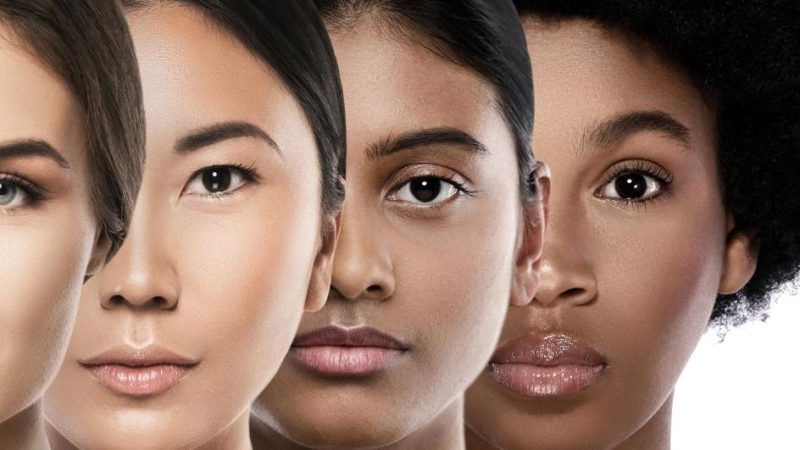Understanding your type of skin is the first and most important step in building an effective skincare routine. Every skin type has its own unique needs, and using the wrong products can lead to breakouts, dryness, irritation, or excess oil. Whether you’re shopping for skincare or trying to improve your complexion, knowing your skin type helps you choose products that actually work.
In this guide, we’ll explain the 5 main types of skin, how to identify yours, and recommend skincare tips and products tailored to each one.
What Are the Different Types of Skin?
Dermatologists and skincare experts generally classify skin into five main types:
- Normal Skin
- Dry Skin
- Oily Skin
- Combination Skin
- Sensitive Skin
Each type can be influenced by genetics, age, environment, hormones, and lifestyle choices.
Normal Skin
Characteristics:
- Balanced oil and moisture levels
- Small, barely visible pores
- Few blemishes or sensitivity
- Smooth, even texture
Skincare Tips:
- Maintain balance with gentle cleansers and lightweight moisturizers
- Exfoliate 1–2 times a week to maintain glow
- Don’t skip SPF—even normal skin needs sun protection
Product Recommendations:
- CeraVe Hydrating Cleanser
- Neutrogena Hydro Boost Gel Cream
- EltaMD UV Clear SPF 46
Best for: low-maintenance routines with consistent hydration and protection
Dry Skin
Characteristics:
- Tight, flaky, or rough texture
- Dull appearance
- More visible fine lines
- Increased sensitivity
Skincare Tips:
- Use cream-based cleansers to avoid stripping moisture
- Layer hydration: toner → serum → moisturizer
- Look for ingredients like hyaluronic acid, ceramides, and glycerin
Product Recommendations:
- La Roche-Posay Toleriane Hydrating Cleanser
- The Ordinary Hyaluronic Acid 2% + B5
- First Aid Beauty Ultra Repair Cream
Best for: strengthening the skin barrier and locking in moisture
Oily Skin
Characteristics:
- Shiny complexion, especially in the T-zone
- Enlarged or visible pores
- Frequent breakouts or blackheads
- Makeup tends to slide off quickly
Skincare Tips:
- Use foaming or gel-based cleansers
- Incorporate BHA (salicylic acid) to unclog pores
- Choose oil-free, non-comedogenic moisturizers
Product Recommendations:
- COSRX Salicylic Acid Daily Cleanser
- Paula’s Choice Skin Perfecting 2% BHA Liquid
- La Roche-Posay Effaclar Mat Moisturizer
Best for: controlling excess oil and preventing clogged pores
Combination Skin
Characteristics:
- Oily in the T-zone (forehead, nose, chin)
- Dry or normal on the cheeks
- Occasional breakouts and flaking
- Requires targeted skincare
Skincare Tips:
- Use a balancing cleanser
- Multi-mask: clay on oily zones, hydrating mask on dry areas
- Choose gel-based moisturizers and lightweight serums
Product Recommendations:
- Neutrogena Hydro Boost Cleanser
- The Ordinary Niacinamide 10% + Zinc 1%
- COSRX Advanced Snail 92 All-in-One Cream
Best for: balancing oil and hydration without irritation
Sensitive Skin
Characteristics:
- Easily irritated or inflamed
- Redness, burning, or itching
- Reaction to certain skincare or weather conditions
- Often overlaps with other skin types
Skincare Tips:
- Avoid fragrances, alcohol, and harsh exfoliants
- Choose soothing ingredients like centella asiatica, aloe vera, and colloidal oatmeal
- Patch test new products before full use
Product Recommendations:
- Avene Extremely Gentle Cleanser
- Dr. Jart+ Cicapair Tiger Grass Serum
- Vanicream Moisturizing Cream
Best for: calming the skin and strengthening the barrier
How to Identify Your Skin Type
Try this simple test at home:
- Wash your face and wait 30–60 minutes without applying products.
- Examine your skin in natural light.
Shiny all over = Oily
T-zone shine, dry cheeks = Combination
Flaky or tight = Dry
No noticeable issues = Normal
Red, burning, or itching = Sensitive
Tip: Your skin type can change due to seasons, diet, stress, or age.
Conclusion
Your type of skin affects everything—from what cleanser you use to how your makeup wears throughout the day. Whether you have oily skin that needs clarifying or dry skin that craves hydration, understanding your skin type helps you choose smarter skincare and see better results.
In 2024, skincare is no longer one-size-fits-all. The key to glowing, healthy skin is personalized care tailored to your unique skin needs.
FAQs
1. Can my skin type change over time?
Yes! Hormones, weather, age, and skincare habits can all affect your skin type.
2. Can I have more than one skin type?
Yes, combination skin is when different parts of your face show different characteristics.
3. What’s the most common skin type?
Combination skin is the most common, especially among teenagers and adults.
4. Is sensitive skin a skin type?
Yes. It refers to how your skin reacts to external factors and can exist alongside oily or dry skin.
5. Do men and women have different skin types?
Men generally have thicker and oilier skin, but the skin types (oily, dry, etc.) are the same across all genders.
Also read: White Hair Care Products: Top Picks for Shine, Strength & Brightness





